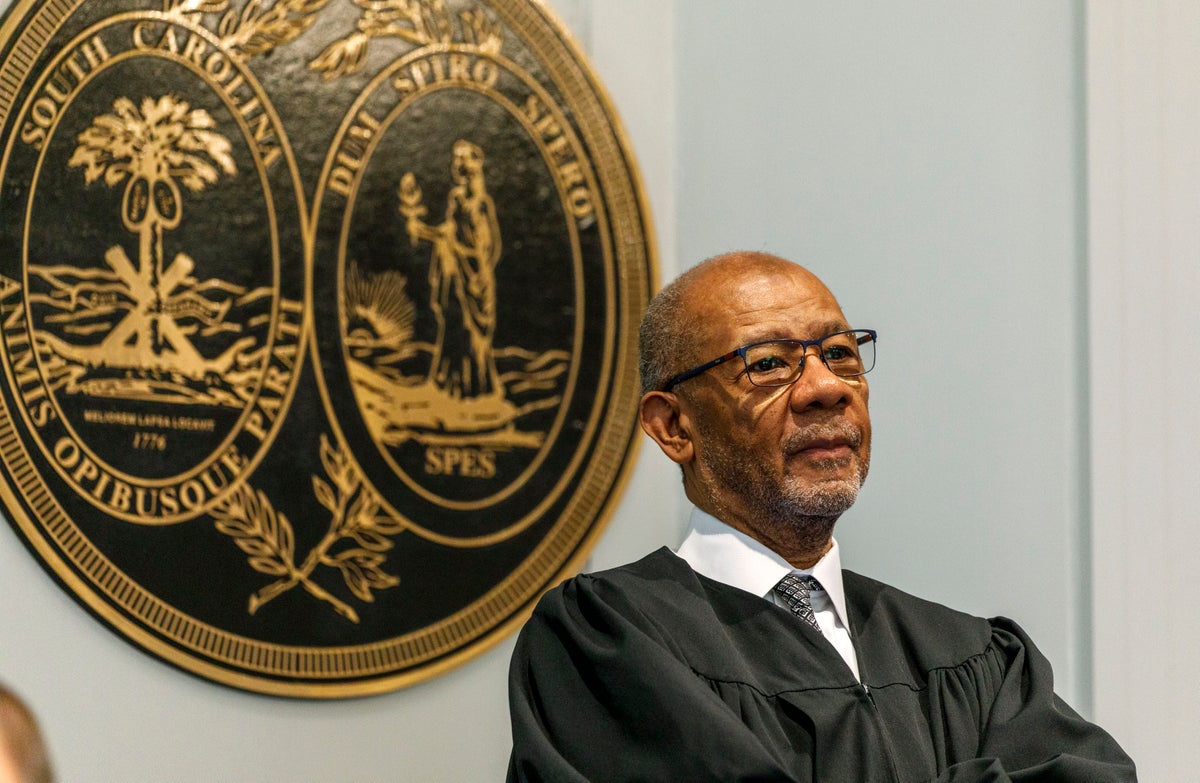
The judge who presided over Alex Murdaugh's murder trial in South Carolina told his law school he wasn't surprised the jury came back with a guilty verdict in three hours.
Judge Clifton Newman returned to Cleveland State University where he earned his law degree in 1976 to discuss his career and the topic on everyone's minds — the six-week trial that ended in Murdaugh's murder convictions for killing his wife and son and life sentence.
The three hours of deliberation after hearing from 75 witnesses was about normal, considering they were paying close attention for so long.
“When they go back to deliberate, they don’t want to look at those 800 exhibits. They don’t want to spend their time combing through everything they have laboriously sat there and listened to for that period of time,” Newman said.
Newman was born in South Carolina, but moved to Cleveland for college and law school after graduating as valedictorian at his racially segregated high school. Newman, who is Black, returned to South Carolina with his wife after they started a family and worried about forced busing of students out of neighborhood schools.
Cleveland State University plans to further honor Newman in November by inducting him into the law school's hall of fame.
“You showed the world an example of what the judiciary at its best can be through your calm and deliberate demeanor through this lengthy and complex case,” said Judge Brendan Sheehan who presides in Cuyahoga County.
Prosecutors said Murdaugh killed his wife and son at their home in June 2021, shooting them with two different weapons, cleaning up the scene, then driving to visit his ailing mother before calling 911 and saying he discovered the bodies.
Newman was asked about his decision to allow extensive testimony on dozens of financial crimes for which Murdaugh is awaiting trial. Defense attorneys said it unfairly turned jurors against him and compelled Murdaugh to think he had to testify in his own defense.
Newman said he can't give opinions, like whether he thought Murdaugh should have testified or was believable on the stand, because the defense is appealing the murder convictions.
“Once the defendant takes the stand and testifies almost everything is fair game at that point. We’ll see where it goes,” the judge said.
Newman said the Murdaugh case continued a mystery that has transfixed him throughout his 23 years on the bench: why human beings do what they do to each other. The judge said he has no doubt Murdaugh loved his wife and son. And that belief led to the judge's often-quoted comment during sentencing, that he suspects the final things they saw before they died will stay with Murdaugh every day.
“I'm told the person who is killed will haunt, will come back, and they’ll never be able to get over the moment in time that they took that person's life,” Newman said, adding he doesn't know “whether that is a spiritual belief or just my view of the world.”
The judge also discussed some other high-profile cases, including the state trial of white police officer Michael Slager, charged with murder in the shooting of an unarmed Black man trying to run away from a traffic stop in North Charleston in 2015.
North Charleston was one-third African American and Newman said he was determined to make sure the pool of potential jurors matched the community. He sent deputies and bailiffs to personally deliver every jury duty notice and met his goal. But in the end, just one Black man made it onto the jury after others had hardships.
“The best I could do was appoint that Black guy the foreperson of the jury, so that if there is another not guilty verdict here, he had to sign that verdict form,” Newman said.
The case ended in a hung jury before Slager pleaded guilty to federal charges and was sentenced to 20 years in prison.
There were lighthearted moments too. Newman recounted how he met his wife at Cleveland State, driving her and friends home in a near blizzard. He was also asked who he thinks should play him if a movie is made of the Murdaugh case.
Newman acknowledged he heard suggestions he could play himself and pointed out he is approaching the mandatory retirement age for judges in South Carolina.
“I turn 72 in November, so I’ll be looking at something else to do," Newman said.







